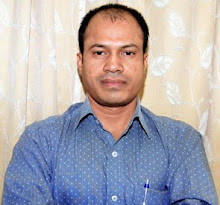(TOI)
TOKYO. Japan is facing its worst crisis in the 65 years since the end of World War II, Prime Minister Naoto Kan said on Sunday, calling on the nation to unite after it was devastated by a huge earthquake. ( Japan scrambles to avert meltdowns as nuclear crisis deepens )
The situation at a quake-stricken atomic power plant also remains grave, Kan said as engineers battled a nuclear emergency sparked by the massive 8.9 magnitude earthquake and the devastating tsunami it triggered. (Read: Quake moved Japan by 8 feet: USGS)
"The current situation of the earthquake, tsunami and the nuclear plants is in a way the most severe crisis in the past 65 years since World War II," Kan said at a press conference.
"Whether we Japanese can overcome this crisis depends on each of us," Kan said, calling for the nation to unite.
"I strongly believe that we can get over this great earthquake and tsunami by joining together."
Japan battled a feared meltdown of two reactors at a quake-hit nuclear plant on Sunday, as the full horror of the disaster emerged on the ravaged northeast coast where more than 10,000 people were feared dead. (Read: More than 200 bodies at new site - Japan police)
An explosion at the ageing Fukushima No. 1 atomic plant blew apart the building housing one of its reactors Saturday, a day after the biggest quake ever recorded in Japan unleashed a monster 10-metre (33-foot) tsunami.
The atomic emergency widened Sunday as the cooling systems vital for preventing overheating failed at a second reactor, and the government warned there was a risk it too could be hit with a blast.
TOKYO. Japan is facing its worst crisis in the 65 years since the end of World War II, Prime Minister Naoto Kan said on Sunday, calling on the nation to unite after it was devastated by a huge earthquake. ( Japan scrambles to avert meltdowns as nuclear crisis deepens )
The situation at a quake-stricken atomic power plant also remains grave, Kan said as engineers battled a nuclear emergency sparked by the massive 8.9 magnitude earthquake and the devastating tsunami it triggered. (Read: Quake moved Japan by 8 feet: USGS)
"The current situation of the earthquake, tsunami and the nuclear plants is in a way the most severe crisis in the past 65 years since World War II," Kan said at a press conference.
"Whether we Japanese can overcome this crisis depends on each of us," Kan said, calling for the nation to unite.
"I strongly believe that we can get over this great earthquake and tsunami by joining together."
Japan battled a feared meltdown of two reactors at a quake-hit nuclear plant on Sunday, as the full horror of the disaster emerged on the ravaged northeast coast where more than 10,000 people were feared dead. (Read: More than 200 bodies at new site - Japan police)
An explosion at the ageing Fukushima No. 1 atomic plant blew apart the building housing one of its reactors Saturday, a day after the biggest quake ever recorded in Japan unleashed a monster 10-metre (33-foot) tsunami.
The atomic emergency widened Sunday as the cooling systems vital for preventing overheating failed at a second reactor, and the government warned there was a risk it too could be hit with a blast.


No comments:
Post a Comment